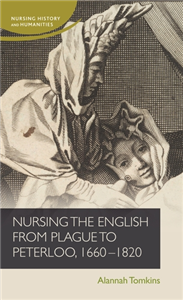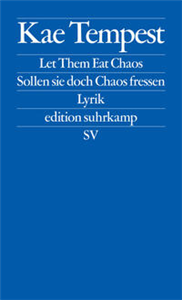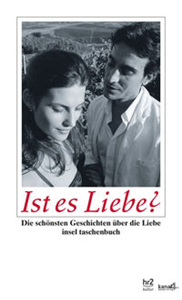Your Search Results
-
minibombo
Minibombo makes picture books characterized by clear images and solid colours, telling stories with a short text or no text at all. The books aim to create a participated reading process between adults and children and require a bit of creativity and cooperation on their part. Minibombo loves to explore different types of communication. This is why some of its paper stories have become the starting point for creating digital applications. The apps refer to the original stories in the books and develop them further by exploiting a different code. All the minibombo apps are available worldwide on the App Store and Google Play. Minibombo started in Reggio Emilia, Italy, in 2013. Since its beginnings, it has been highly appreciated both by readers and operators in the sector and has been awarded several prizes which have helped make its books known among a wide public. Its books are translated in more than fourteen counties worldwide.
View Rights Portal
-
Promoted Content2021
Self-medication in Pregnancy and Breast-feeding
Counselling handbook
by Dr. Annette Abhau
Cough, hay fever or herpes are at least as troublesome during pregnancy and breast-feeding as under normal “conditions” - and yet everything is different. Physiological changes to the body in pregnancy and lactation, together with the vulnerability of the unborn baby or infant, set particular requirements when selecting the correct, safe medication. Especially in the area of self-medication, the needs of pregnant and breast-feeding women for information are great and call for competent advice! This comprehensive handbook is the key: General information about pharmacotherapy, supplementary measures, vaccinations, questions about diet and infections in pregnancy and lactation creates a broad knowledge base. The core feature of the book are the traffic light tables, with precise recommendations for medicinal products for all types of treatment. All the important indications for selfmedication in pregnancy and lactation are listed and the tables are supported by detailed explanations of the individual assessments. The sections “Advice from medical specialists” are particularly useful, with additional tips from gynaecologists and “Footnotes” with relevant information on the use of prescription- only medicines – and as the ultimate practical tool: the enclosed sales counter leaflets with all traffic light tables to enable quick reference for first-class advice!
-
Promoted Content2022
Micronutrient Depleters: Acid Blockers
Things to know about medicines and micronutrients
by Uwe Gröber and Prof. Dr. Klaus Kisters
This guide provides patients with important medical information about interactions of their drug products with vitamins and minerals. These interactions are not always listed in the accompanying package inserts. Those who take acid blockers such as omeprazole or pantoprazole may not only develop disorders relating to calcium, magnesium, vitamin D and bone metabolism in the long term, but above all become deficient in vitamin B12. This way, patients can improve their treatment, reduce the side effects of their medication and increase their quality of life!
-
 Trusted Partner
Medicine
Trusted Partner
MedicineNursing Classifications
Practical Applications, Education and Electronic Nursing Documentation
by Maria Müller Staub, Kurt Schalek, Peter König (editors)
How can nursing concepts and terminology be systematically described, defined, and classified? This essential reference book on nursing classifications and conceptual systems provides an introduction to the conceptual systems in nursing, traces their historical development, and explains their key terms and the principles on which they are based. It clearly explains the definitions and types of classification systems, describes their functions, and outlines their reference classifications. It presents a range of conceptual systems, including nursing diagnoses (NANDA), nursing interventions (NIC), and nursing outcomes (NOC), as well as the international classification for nursing practice (ICNP). These classifications are supplemented by other classification systems related to nursing. The authors describe in detail how these and other classifications were drawn up, what their objectives are, and how they are structured and composed. Target Group: Nursing students, practicing nurses, nursing managers, nursing trainers, software developers
-
 Trusted Partner
2023
Trusted Partner
2023Drug Products in Nursing and Care Practice
Safe handling of medication
by Dr. Ulrich Räth and Friedhelm Kamann
The assessment of nursing and care needs and the organisation and quality assurance of nursing care are key tasks performed by nursing staff. This also includes administering medication, something which requires sound organisation, control, implementation and documentation. Nurses observe whether medication is taken consistently, has the desired effect, and whether undesirable side effects occur. The drug product as a „special commodity“ – whether in inpatient long-term care, in outpatient care, or in hospital – requires special knowledge concerning - correct storage, - the pharmacological effect, and - appropriate application. This book is geared towards the diseases and symptoms of people requiring nursing or care. All the important facts concerning the use of medicines are presented here in an understandable manner, focusing on the essentials. Numerous illustrations and practical tips provide the link to everyday nursing care. It is the ideal textbook and reference work for nursing and care assistants as well as nursing professionals.
-
 Trusted Partner
MedicineAugust 2016
Trusted Partner
MedicineAugust 2016Evidence-based Nursing and Caring
by Johann Behrens, Gero Langer
Evidence-based-nursing and caring, a method that relies on scientifically verifiable data from an outside perspective (“external evidence”) as well as the individual needs of those cared for as well as the caretakers (“internal evidence”). This title offers a detailed insight into external and internal evidence in nursing care and shows in a 6-step-approach how to • make shared decision • analyse and describe problems • find literature and relevant studies • critically evaluate nursing studies and their quality • change nursing practice and • evaluate nursing care. Target Group: Nursing Students, Nurse Educators.
-
 Trusted Partner
2022
Trusted Partner
2022Micronutrient Depleters: Metformin
Things to know about medicines and micronutrients
by Uwe Gröber and Prof. Dr. Klaus Kisters
This guide provides patients with important medical information about interactions of their drug products with vitamins and minerals. These interactions are not always listed in the accompanying package inserts. Taking the diabetes drug metformin can cause a vitamin B12 deficiency, which causes severe nerve damage. Besides vitamin B12, other micronutrients such as magnesium, coenzyme Q10, vitamin C, vitamin D and chromium can support the therapy with metformin and other diabetes medicines. This way, patients can optimise their treatment, reduce the side effects of their medication and improve their quality of life!
-
 Trusted Partner
2022
Trusted Partner
2022Coping Better with Cancer Therapy
Improved quality of life with the right vitamins and minerals
by Uwe Gröber and Prof. Dr. Klaus Kisters
Cancer patients often suffer from malnutrition. Not only do they lack energy-providing macronutrients such as protein, fats and carbohydrates, they particularly lack the micronutrients that regulate the metabolism. Micronutrients such as vitamin D, selenium, L-carnitine, omega-3 fatty acids and vitamin C significantly contribute to supporting the immune system of cancer patients, reducing inflammatory processes, alleviating the side effects of cancer therapy, and improving their quality of life. This patient guide provides information about the relationship between cancer, malnutrition, micronutrient deficiencies, the influence of cancer therapeutics on micronutrient balance, and how cancer patients can support their therapy and improve their quality of life with a controlled intake of micronutrient
-
 Trusted Partner
May 2024
Trusted Partner
May 2024Get Out of the Nursing Crisis!
New concepts between profession and solidarity
by Thomas Klie
Nursing is sick and lacking. In funding, staff and structure. The issue of who is going to care for Germany's elderly and sick in the future, and how and where they are going to do so, is completely open. One thing is certain: caring won’t work at all without the “joint commitment of everyone”. Thomas Klie, an expert in this fi eld, identifi es and analyses the dilemmas of the care industry. Above all, though, he and other experts present ideas and perspectives for the future – and in doing so challenge the hitherto half-hearted to lurching care policy.
-
 Trusted Partner
Medicine
Trusted Partner
MedicinePsychiatric Nursing
A Concise Handbook and Guide to Further Training, Practice, and Study
by Hilde Schädle-Deininger, David Wegmüller
Comprehensive care, support, and treatment for people with mental illness calls for trained and committed professional nursing staff with interpersonal skills. Hilde Schädle-Deininger and David Wegmüller present the full spectrum of relevant specialist knowledge for further training and studies in psychiatry. All the topics in the curriculum are covered in a clearly structured, visual format, with special attention devoted to building rapport with patients, effective observation, the structures of psychiatric treatment, and networking. Target Group: Nurses, psychiatric nurses, psychiatrists
-
 Trusted Partner
Trusted Partner
Basic Stimulation in Nursing
by Christel Bienstein
This bestselling title is a practical handbook on the concept of basic stimulation in nursing and its application for patients suffering from perceptional deficits, developmental delays and mental handicaps. It enables nurses to develop, improve and stabilize physically and mentally handicapped people with impaired perceptional, communicative and motor skills. Target Group: Nurses
-
 Trusted Partner
MedicineJanuary 2025
Trusted Partner
MedicineJanuary 2025Nursing the English from plague to Peterloo, 1665-1820
by Alannah Tomkins
This book studies the negative stereotypes around the women who worked as sick nurses in this period and contrasts them with the lived experience of both domestic and institutional nursing staff. Furthermore, it integrates nursing by men into the broader history of care as a constant if little-recognised presence. It finds that women and men undertook caring work to the best of their ability, and often performed well, despite multiple threats to nurse reputations on the grounds of gender norms and social status. Chapters consider nursing in the home, in general hospitals, in specialist institutions like the Royal Chelsea Hospital and asylums, plus during wartime, illuminated by multiple accounts of individual nurses. In these settings, it employs the sociological concept of 'dirty work' to contextualise the challenges to nurses and nursing identities.
-
 Trusted Partner
2022
Trusted Partner
2022Drugs and Medical Devices in Nursing
Training for nurses and carers
by Dr. Constanze Schäfer
What applies when storing potatoes is also good for drugs and medical devices! But this is where the similarities end. If medicines are not stored correctly or used properly, they may not be effective. Pharmacists - the experts on medicines - explain to the nursing team: - How light, air and temperature can cause damage - Where the pitfalls lie in the use of tablets, drops etc. - What makes medical devices so different from drugs New in the 3rd edition: Improved overview of the types of use. Clearer comparison of drugs and medical devices. Video clips on the use of specific dosage forms can now be directly launched from the presentation. 36 editable PowerPoint slides, videos and a complete text of the presentation are available on CD-ROM and for download
-
 Trusted Partner
Trusted Partner
-
 Trusted Partner
Trusted Partner
-
 Trusted Partner
Humanities & Social SciencesApril 2024
Trusted Partner
Humanities & Social SciencesApril 2024Murky waters
British spas in eighteenth-century medicine and literature
by Sophie Vasset
Murky waters challenges the refined image of spa towns in eighteenth-century Britain by unveiling darker and more ambivalent contemporary representations. It reasserts the centrality of health in British spas by looking at disease, the representation of treatment and the social networks of care woven into spa towns. The book explores the great variety of medical and literary discourses on the numerous British spas in the long eighteenth century and offers a rare look at spas beyond Bath. Following the thread of 'murkiness', it explores the underwater culture of spas, from the gender fluidity of users to the local and national political dimensions, as well as the financial risks taken by gamblers and investors. It thus brings a fresh look at mineral waters and a pinch of salt to health-related discourses.
-
 Trusted Partner
August 2018
Trusted Partner
August 2018Let Them Eat Chaos / Sollen sie doch Chaos fressen
Lyrik
by Kae Tempest, Johanna Davids
Irgendwo in London, es ist 4.18 Uhr. Sieben Menschen liegen wach, gequält von Sorgen, Ängsten und Erinnerungen. Nacheinander lernen wir sie kennen, blicken auf ihre Leben: beschädigt, entfremdet, scheinbar ohne jede Hoffnung. Doch dann bricht ein Sturm über die Stadt herein, treibt die Einsamen und Verletzten auf die Straße und lässt sie erkennen, wie tief sie miteinander verbunden sind. Kate Tempests Langgedicht Let Them Eat Chaos ist nicht nur ein mitreißendes Sprachkunstwerk, sondern auch ein wütender Aufruf zum Handeln, gegen soziale Ungerechtigkeit, gegen Verrohung und politische Gewalt, für mehr Empathie, Gemeinsamkeit und Hoffnung im Chaos.
-
 Trusted Partner
Medicine
Trusted Partner
MedicineEating – Drinking – Digesting
Encouragement, Care and Treatment for People with Severe Disabilities, Illness and in Old Age
by Annette Damag, Helga Schlichting
Eating, drinking, nutrition, and mealtimes play a central role in the daily lives of people with physical and mental disabilities. This publication discusses people with multiple disabilities and cognitive impairments, such as dementia, as well as people in a persistent vegetative state. This practical handbook - identifies problems with eating and drinking among people with severe disabilities and outlines their causes - provides comprehensive, practical guidance on working with people with sensory and motor problems, swallowing difficulties, eructation, nausea and malnourishment - presents posture and positioning aids and techniques to encourage drinking, digestion, basal stimulation, and enteral nutrition - integrates interdisciplinary perspectives from education studies, nursing, and therapy, taking the patient’s life story into account, and discusses working with relatives in drawing up a care plan. Target Group: Practicing nurses, disability support workers, rehabilitation nurses and therapists, basal stimulation trainers, and other health care professionals
-
 Trusted Partner
October 2007
Trusted Partner
October 2007Frauen morden anders
Die spannendsten Kriminalgeschichten
by Carolin Bunk, Hans Sarkowicz
Frauen morden anders. Raffinierter, intelligenter und überraschender. Das wissen wir aus den Erzählungen von Krimiautorinnen. Mit großkalibrigen Waffen und tödlichen Schlägereien haben Frauen nichts im Sinn. Sie nutzen geschickt die Schwächen ihrer Opfer, vermeiden verräterische Spuren und machen selten Fehler. Männliche Ermittler sind ihnen nicht gewachsen. Und gäbe es den Kommissar Zufall nicht, würde kaum eine von ihnen hinter Gittern landen. Die spannendsten Geschichten von mörderischen Frauen im Literaturkanal der Bahn. Zu hören im November im ICE, zu lesen im insel taschenbuch.
-
 Trusted Partner
September 2008
Trusted Partner
September 2008Tödliches Eis
Kriminalgeschichten aus Skandinavien
by Carolin Bunk, Hans Sarkowicz
Mord, das wissen die Krimiexperten, ist im Norden Europas eine besondere Kunst. Alle Mittel sind recht, um langwierige Beziehungsdramen abzukürzen oder den Austausch von Wertgegenständen zu beschleunigen. Das jedenfalls behaupten die skandinavischen Krimiautoren, die bei der Erfindung von raffinierten Todesarten kaum zu schlagen sind. Und noch etwas gehört zu den Spezialitäten ihrer Erzählungen: Es ist selten etwas wirklich so, wie es auf den ersten Blick erscheint. Mit Texten von Henning Mankell, Åke Edwardson, Håkan Nesser, Arne Dahl, Kim Småge u.v.a. Zu hören im Oktober 2008 im Literaturkanal des ICE, zu lesen im insel taschenbuch. Ab November 2008 als Hörbuch im Hörverlag erhältlich.
-
 Trusted Partner
April 2007
Trusted Partner
April 2007Ist es Liebe?
Die schönsten Geschichten über die Liebe
by Hans Sarkowicz, Carolin Bunk
Die schönsten Liebesgeschichten im Literaturkanal der Bahn. Zu hören im Juni im ICE, zu lesen im insel taschenbuch. Mit Geschichten von Hermann Hesse, Isabel Allende, Rafik Schami, Robert Walser u.v.a.































